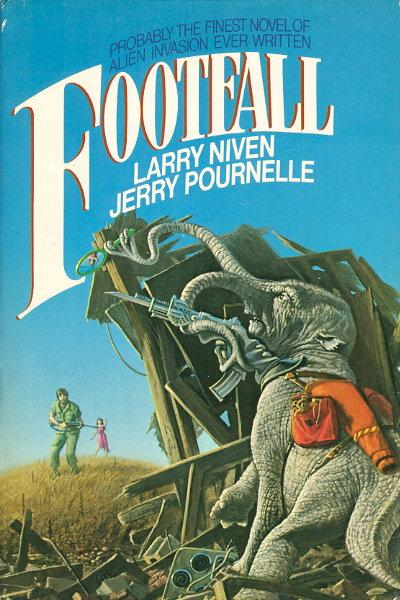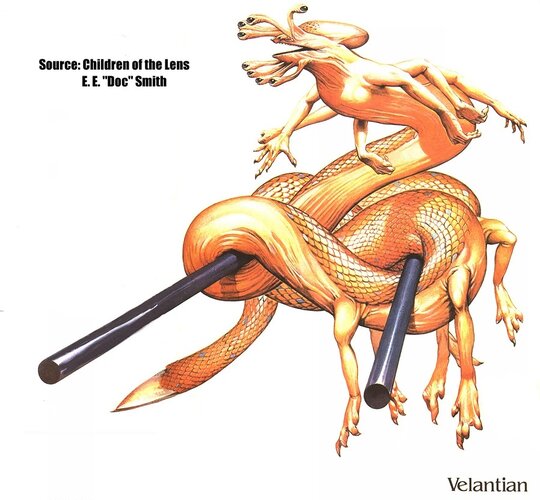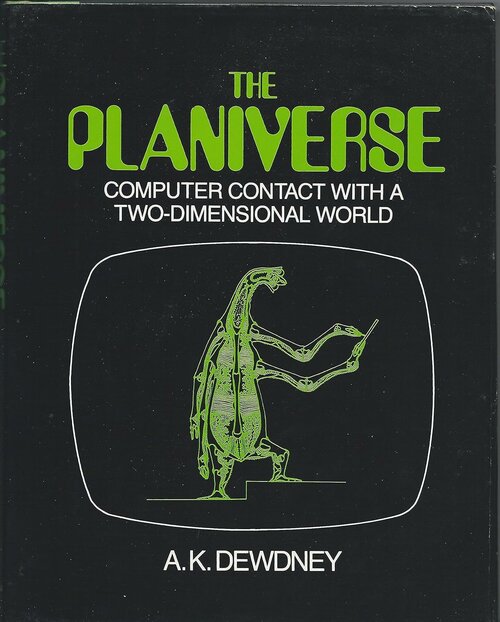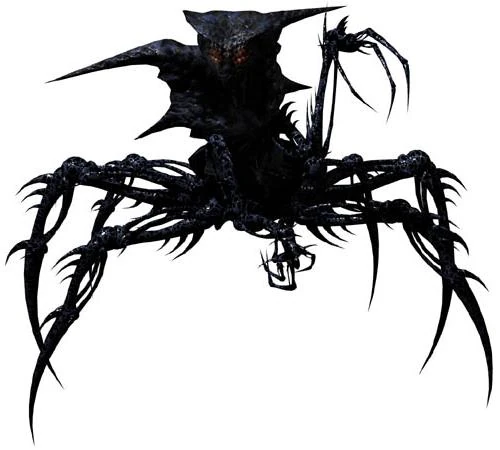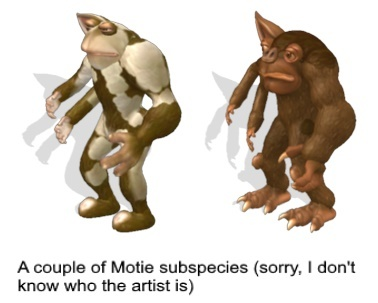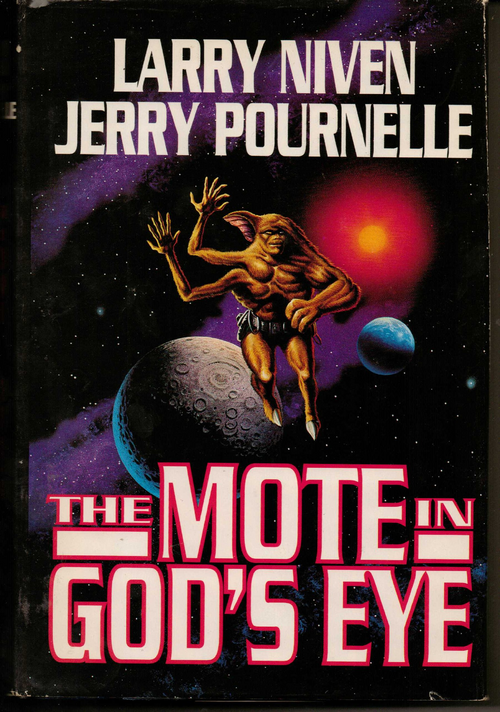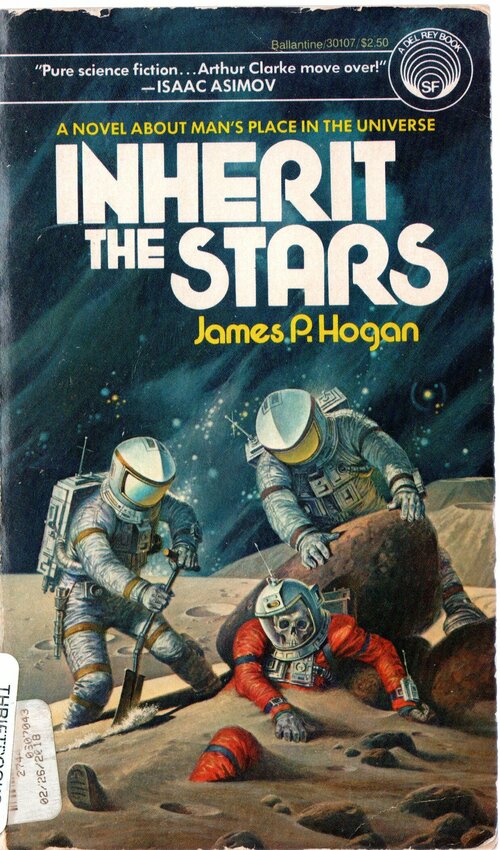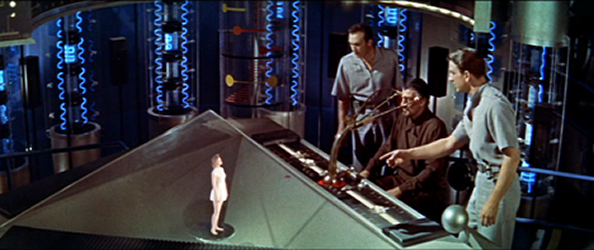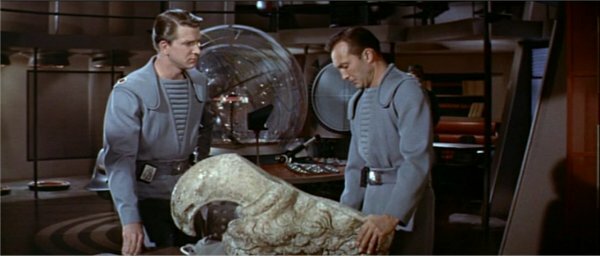Rhinocrates
ACCESS: Top Secret
- Joined
- 26 September 2006
- Messages
- 3,015
- Reaction score
- 7,643
Martin Bayer, he did say of a painting of an alien that looked like a baby elephant:
Clinically, it's called intellectual laziness.
Yes, and the bumps-on-their-foreheads kind who talk about honour/logic/profit/petunias are even worse.
So then, what are the genuinely interesting and deeply explored aliens that you have encountered in sf that are truly alien? Without throwing hands up and saying 'they're just incomprehensible and trying to understand them leads to madness', that is. That's probably an honest route, but there's not much to say after that, apart from 'Tekeli-li! Tekeli-li!.' Sorry, Howard. Still, the Elder Things, Yithians and so on are nicely described physiologically.
HG Wells got the ball rolling first with his tongue-in-cheek extrapolation of human evolution into the far future in 'The Man of the Year Million,' inspired by Samuel Butler's Erewhon. That led to the Marians in The War of the Worlds (he even references the original essay in a meta-reference in the narration of that novel). While not alien, Olaf Stapledon explored future iterations of humanity based on philosophical ideas in Last and First Men, which also had some very different but still well-described truly alien Martians. He then really let loose in Star Maker, but again, stuck to logic and worked through the ramifications of his creations' peculiarities.
I'd say Fred Hoyle's Black Cloud is physically extreme, but it personality is rather human, while Stanisław Lem's Solaris is genuinely weird and the long essays within the novel that may bore some readers are his ironic parodies of attempts to describe something ultimately beyond human comprehension.
Stephen Baxter has come up with some good ones, such as the Silver Ghosts in his Xeelee stories. Their evolution and psychology/culture are explained as arising directly from their circumstances. Their sun and biosphere was destroyed by a companion body, so they are driven by the need to conserve energy and are compound entities/communities within perfectly reflective (and therefore insulating) spheres.
So then:
1. Really odd
2. Somewhat plausible (what's a biological TRL?)
3. Consequences of their evolution and oddness worked out and examined.
Clinically, it's called intellectual laziness.
Yes, and the bumps-on-their-foreheads kind who talk about honour/logic/profit/petunias are even worse.
So then, what are the genuinely interesting and deeply explored aliens that you have encountered in sf that are truly alien? Without throwing hands up and saying 'they're just incomprehensible and trying to understand them leads to madness', that is. That's probably an honest route, but there's not much to say after that, apart from 'Tekeli-li! Tekeli-li!.' Sorry, Howard. Still, the Elder Things, Yithians and so on are nicely described physiologically.
HG Wells got the ball rolling first with his tongue-in-cheek extrapolation of human evolution into the far future in 'The Man of the Year Million,' inspired by Samuel Butler's Erewhon. That led to the Marians in The War of the Worlds (he even references the original essay in a meta-reference in the narration of that novel). While not alien, Olaf Stapledon explored future iterations of humanity based on philosophical ideas in Last and First Men, which also had some very different but still well-described truly alien Martians. He then really let loose in Star Maker, but again, stuck to logic and worked through the ramifications of his creations' peculiarities.
I'd say Fred Hoyle's Black Cloud is physically extreme, but it personality is rather human, while Stanisław Lem's Solaris is genuinely weird and the long essays within the novel that may bore some readers are his ironic parodies of attempts to describe something ultimately beyond human comprehension.
Stephen Baxter has come up with some good ones, such as the Silver Ghosts in his Xeelee stories. Their evolution and psychology/culture are explained as arising directly from their circumstances. Their sun and biosphere was destroyed by a companion body, so they are driven by the need to conserve energy and are compound entities/communities within perfectly reflective (and therefore insulating) spheres.
So then:
1. Really odd
2. Somewhat plausible (what's a biological TRL?)
3. Consequences of their evolution and oddness worked out and examined.


